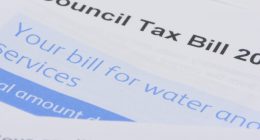
My father was one of the smartest people I have ever met.
He was also among the dumbest investors.
The two facts are related.
He went to N.Y.U. on a full scholarship, finished in two and a half years and taught cryptology in the Army after graduation — and was convinced he could outsmart the stock market.
Dad was always buying penny stocks of companies that would “change the world” or investing in dubious tax shelters that always seemed to trigger an I.R.S. audit, and he was convinced that he could time the market.
One reason he was so frenetic in his trading was he had time to do it. He held senior marketing positions in several major insurance companies, jobs that he didn’t find particularly taxing and that gave him plenty of free time, and he often used it to “play the market.”
Badly.
I am nowhere near as smart as my father. But now, like him, I find I have free time during the day because I realize I’ve got enough money stashed away to be able to cut back on my workload.
And because I like business and finance, I find myself spending more time paying attention to what is going on in the market. I will see or read something intriguing about the transportation industry, for example, and say to myself, “I wonder if I should buy X.” And then there will be a feature on an up-and-coming online retailer and I’ll go: “I should keep an eye on it and maybe buy on a dip.”
Then I will think of my father’s impulsive approach to investing and realize I’m on the verge of following in his footsteps, so I stop and remind myself how I developed my own self-taught approach to investing, and that I have already have in place a plan to prevent myself from trading too often.
I started in my late 20s, when I had a little bit of money (and no children). I didn’t know enough to pick individual stocks, so I figured mutual funds were the way to go. In researching what to buy, I was stunned to learn that most actively managed mutual funds never beat the benchmark that they were being judged against, a reality that remains true today.
What that meant was if I could just match the benchmark — mainly, the S&P 500 — I would be ahead of the majority of investors who were listening to the underperforming professional advisers. I became a firm believer in what was then, in the early 1980s, a relatively new idea — index funds. I remain a huge fan.
As I put together my portfolio — which is now 65 percent stocks, 30 percent intermediate-term bonds and 5 percent cash — the vast majority of everything I own is still in index funds. They are passively managed, meaning that neither I, nor the fund manager need to do a thing. No frequent trading is required.
Back in the late 1980s, when I told my father that I was investing in index funds, he was horrified.
“If you just match the benchmark, you are getting an average return. Why would you ever want to be average?” he asked.
“Well, Dad, that still would put me ahead of most active investors.”
“Yes, but certain people do outperform the averages. I plan to be in that group.”
Certainly people do outperform the market, but I don’t know of many who do so consistently. My father wasn’t one of them.
Here is what I am doing to keep from shooting myself in the foot.
While it would be nice to think I could set up my portfolio properly and then forget about it, the world is not that simple. A sudden surge in stock prices could lead me to have more money than I would like in equities, for example. Conversely, a drop in prices could result in my having too high a proportion of my money in bonds.
But to make sure I don’t fiddle excessively with what I own, which could generate trading expenses as well as taxes, I have decided I will only make investment decisions twice a year: On Jan. 1 and my birthday, July 15. (I would have made it June 30, but this way I won’t forget.)
On those two days, I will sit down and evaluate both my asset allocation and my individual holdings, changing only what I absolutely need to. This year, on Jan. 1, I was pleased with my portfolio, so I did nothing.
I still plan on reading the business press and watching the occasional financial television show, but I have made a commitment not to act, except on those two days.
When I think about my father’s approach to financial planning, I realize what he was doing was essentially gambling.
I have nothing against gambling. But I hate to lose money. That’s why I am going to restrict my gambling to the blackjack app I just added to my phone. I will be betting with play money, so I won’t really win any cash. But much more important to me, it will be impossible for me to lose any real money.
I can live with that.
Source: | This article originally belongs to Nytimes.com








